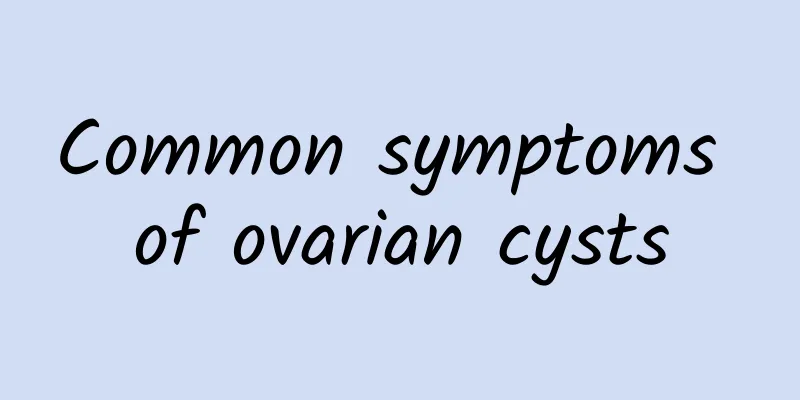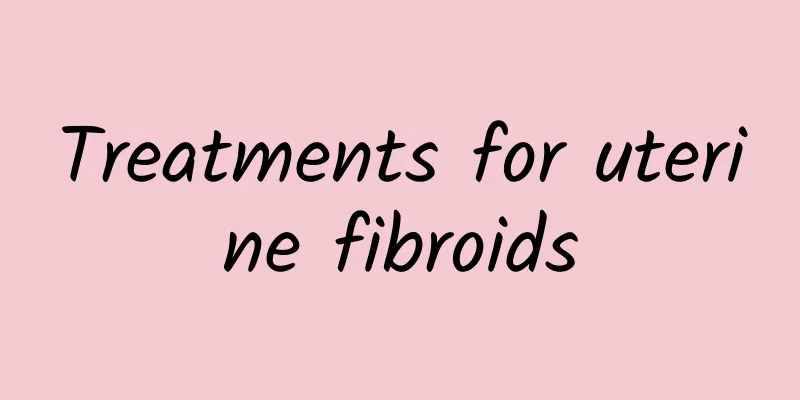Do you know the best treatment for pelvic inflammatory disease?

|
Do you know the best treatment for pelvic inflammatory disease? I believe this is a question that many patients want to know. The clinical incidence of pelvic inflammatory disease is relatively high. The occurrence of this disease seriously endangers women's health and life. If it is not actively treated, once it turns into chronic pelvic inflammatory disease, it will increase the difficulty of treatment. Let's take a look at the best treatment for pelvic inflammatory disease. The main symptoms of pelvic inflammatory disease are lower abdominal pain of varying degrees. In mild cases, there is lower abdominal discomfort. In severe cases, in addition to pain, there is also a feeling of heaviness in the lumbar sacral region. It is often aggravated after fatigue, sexual intercourse, before and during menstruation. The systemic symptoms of pelvic inflammatory disease are not obvious. The systemic symptoms of patients with chronic pelvic inflammatory disease are mostly not obvious. Sometimes there may be low fever, fatigue, increased leucorrhea, etc. Some patients may reappear neurasthenia symptoms, such as lack of energy, general discomfort, insomnia, etc. 1. Physical therapy: Of course, this is the most suitable method in clinical practice. Choosing this method for treatment can promote local blood circulation in the pelvic cavity, improve the nutritional status of tissues, and facilitate the absorption and disappearance of inflammation. Commonly used methods include short wave, ultrashort wave, ion penetration (various drugs such as streptomycin can be added), wax therapy, etc. You can also choose drug treatment. The treatment of acute attacks of chronic pelvic inflammatory disease is the same as that of acute pelvic inflammatory disease. While using anti-inflammatory drugs, α-chymotrypsin or hyaluronidase is also used, 5 to 10 times as a course of treatment, to facilitate the absorption of adhesions and inflammation. 2. Surgical treatment: Different methods are needed for different situations. For patients with masses such as hydrosalpinx or tubo-ovarian cysts or recurrent chronic salpingitis, surgical treatment is feasible. The principle of surgery is to completely cure the disease and avoid the chance of recurrence of residual lesions. The scope of surgery depends on the condition, and unilateral adnexectomy or hysterectomy plus bilateral adnexectomy is performed. For young women, ovarian function should be preserved as much as possible. 3. General treatment: In most cases, general treatment methods can be chosen to relieve patients' mental concerns, enhance their confidence in treatment, increase nutrition, exercise, pay attention to the combination of work and rest, and improve the body's resistance. Warm reminder: Pelvic inflammatory disease is a disease with a relatively high incidence rate, which causes great harm to women's health. Pelvic inflammatory disease can be divided into acute and chronic according to the circumstances of the disease. Of course, for these two different situations, everyone should choose the treatment method that suits them according to their own situation. |
<<: What are the treatments for vulvar leukoplakia?
>>: Introduction to the best treatment for chronic pelvic inflammatory disease
Recommend
How is cervical hypertrophy diagnosed?
Do you know how to diagnose cervical hypertrophy?...
Can Jinji tablets effectively treat cervical erosion? There are 5 best treatments for cervical erosion in women
Jinji tablets are effective in treating cervical ...
How to treat habitual miscarriage? Do these 4 things
Habitual miscarriage is a problem that troubles m...
What causes bilateral ovarian cysts?
What are the causes and symptoms of bilateral ova...
Is semen also a cause of cervical erosion?
There are many reasons for cervical erosion. Perh...
Are uterine fibroids and ovarian cysts the same? What are the symptoms of ovarian cysts?
Ovarian cysts and uterine fibroids are very commo...
Can I have acupuncture during menstruation? Generally it is not recommended
Acupuncture is generally not recommended during m...
Where is the pain in the lower abdomen? Suspect ectopic pregnancy
Ectopic pregnancy is an emergency that endangers ...
Analysis of the abdominal breathing method that effectively relieves primary dysmenorrhea
Abdominal breathing is one of the more common met...
Young people should pay attention to their health and prevent irregular menstruation
As society progresses, many young people do not p...
How much HCG should be taken to rule out ectopic pregnancy?
If HCG is greater than 15000IU/L, ectopic pregnan...
Can I have sex if I have cervical erosion? Will I bleed if I have cervical erosion?
Cervical erosion is one of the common gynecologic...
What are the causes of uterine fibroids? What are the hazards of uterine fibroids?
What causes uterine fibroids? Uterine fibroids ar...
Only 10 days! Have a tight buttocks like this
In the summer when body curves are exposed, are w...
Key points of syndrome differentiation for uterine fibroids
Uterine fibroids, also known as uterine leiomyoma...









